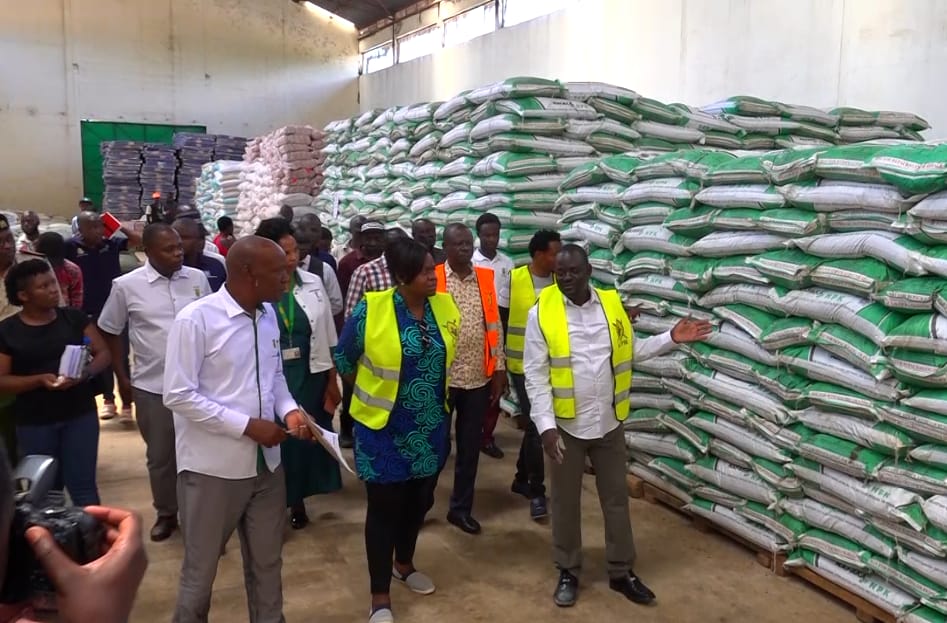- Governor Gladys Wanga emphasized the significance of agriculture to Homa Bay County and expressed worry over the inadequate allocation of fertilizer compared to the number of registered farmers.
Over 245,000 farmers in Homa Bay County are facing distressing times as the National Cereals and Produce Board (NCPB) has identified the presence of counterfeit fertilizers sold to some unsuspecting farmers.
During a recent visit by the NCPB, a committee discovered 107 bags of the fake fertilizer, raising concerns and prompting a warning to farmers against purchasing the counterfeit product.
Jared Okello, Member of Parliament for Nyando, expressed that the committee had identified 107 bags of the questioned fertilizer brand, which have been set aside to prevent their sale to the public.
Furthermore, Okello revealed that a farmer had already purchased a bag of the fake fertilizer and registered a complaint. The issue of compensation arose, with questions surrounding whether compensation should cover solely the cost of the fertilizer or the entire production process.
“We have received a complaint from a farmer who has already used the fake fertilizer, according to the policy, the farmer ought to be compensated, but the question remains should the compensation cover the fertilizer alone or the entire production process,” he said.
Governor Gladys Wanga emphasized the significance of agriculture to Homa Bay County and expressed worry over the inadequate allocation of fertilizer compared to the number of registered farmers.
According to Governor Wanga, Homa Bay County should have received fertilizer worth Ksh.165M based on additional allocation guidelines. However, calculations indicate that the county has received less than Ksh.30M worth of fertilizer. She pledged to appeal to the committee to ensure fairness and justice in the equal distribution of fertilizer.
Governor Wanga further asserted, "Homa Bay deserves to receive a fair share of the fertilizers because we have 245,000 farmers who depend entirely on agriculture, and I will ensure that Homa Bay receives an adequate supply of fertilizer."
John Okinyi, a maize farmer from West Kasipul, welcomed the identification of the fake fertilizers, noting that it would protect farmers from incurring losses. Okinyi emphasized the high cost of the production process and the inability of small-scale farmers to bear the burden of crop failure due to counterfeit inputs.
“It is a good thing that the fake fertilizers have been put aside, we spend so much on fertilizers for proper production that peasant farmers cannot afford to lose their crops,” he said.
The NCPB, in collaboration with the committee on agriculture, is actively working across various counties to identify counterfeit fertilizers and assist affected farmers. Their efforts aim to safeguard the country's agricultural produce, as agriculture plays a crucial role in the nation's economy.










